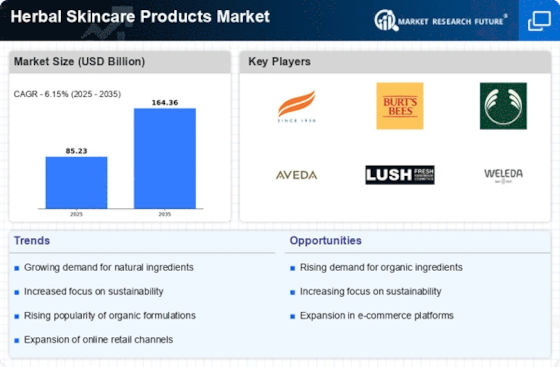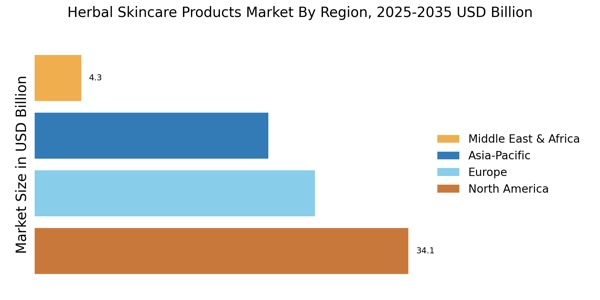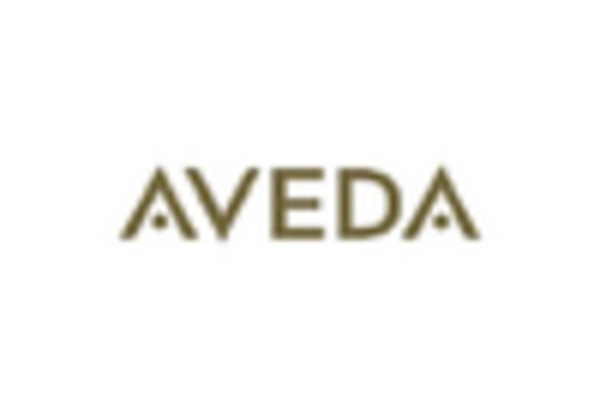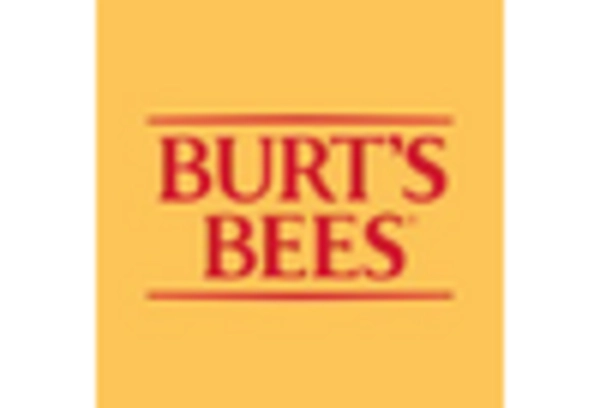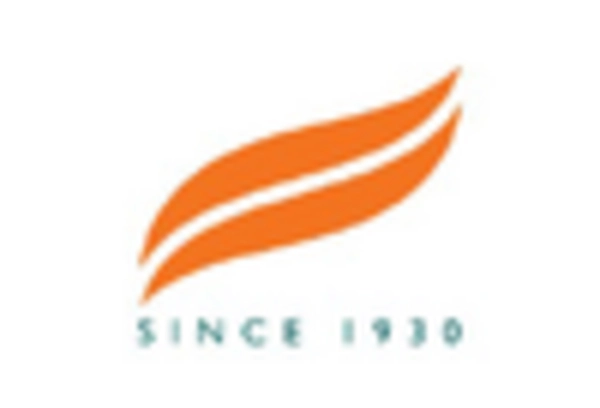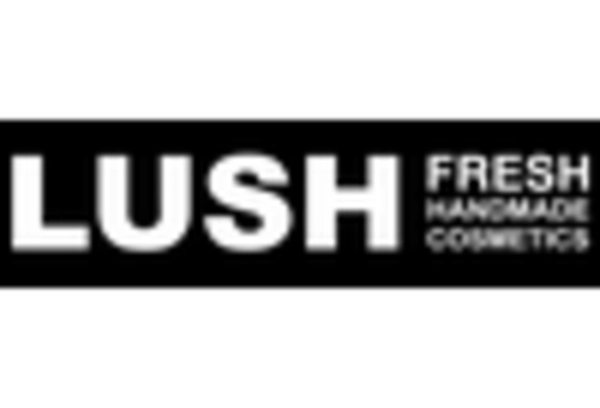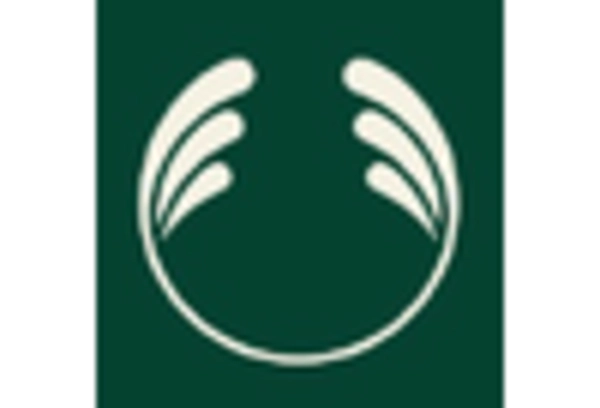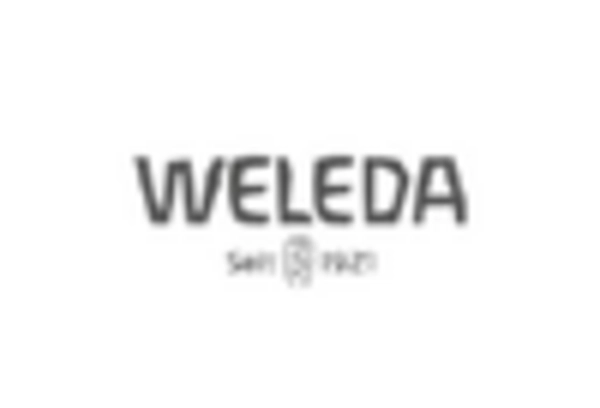Sustainability Trends
Sustainability has emerged as a pivotal driver within the Herbal Skincare Products Market. As environmental concerns escalate, consumers are gravitating towards brands that prioritize eco-friendly practices. This trend is evidenced by a significant increase in the number of companies adopting sustainable sourcing and packaging methods. Recent data suggests that around 60% of consumers are willing to pay a premium for products that are environmentally friendly. This inclination towards sustainability not only influences purchasing decisions but also encourages brands to reformulate their products to include herbal ingredients that are both effective and sustainable. The Herbal Skincare Products Market is thus evolving to meet these expectations, fostering a more responsible approach to skincare.
Influence of Social Media
Social media platforms are playing a crucial role in shaping the Herbal Skincare Products Market. Influencers and beauty enthusiasts are increasingly promoting herbal skincare products, creating a buzz that drives consumer interest. This phenomenon is supported by data showing that products endorsed by influencers see a sales increase of up to 30%. The visual nature of platforms like Instagram and TikTok allows brands to showcase their products effectively, highlighting the benefits of herbal ingredients. As consumers seek authenticity and relatability, the influence of social media is likely to grow, encouraging more brands to engage with their audiences through these channels. This dynamic interaction is expected to further propel the growth of the Herbal Skincare Products Market.
Rise of E-commerce Platforms
The proliferation of e-commerce platforms is transforming the Herbal Skincare Products Market. With the convenience of online shopping, consumers are increasingly turning to digital channels to purchase their skincare products. Recent statistics indicate that online sales of herbal skincare products have surged by over 25% in the last year, reflecting a shift in consumer behavior. E-commerce allows brands to reach a broader audience, including niche markets that may not have access to physical retail locations. Additionally, the ability to provide detailed product information and customer reviews enhances consumer confidence in purchasing herbal skincare products online. This trend is likely to continue, as more consumers embrace the ease and accessibility of online shopping.
Focus on Anti-Aging Solutions
The demand for anti-aging solutions is a significant driver in the Herbal Skincare Products Market. As the global population ages, there is an increasing interest in products that offer anti-aging benefits derived from herbal ingredients. Market Research Future indicates that the anti-aging skincare segment is projected to grow at a rate of 8% annually, with consumers seeking natural alternatives to traditional chemical-based products. Herbal ingredients such as aloe vera, green tea, and ginseng are gaining popularity for their proven efficacy in promoting youthful skin. This trend is prompting brands to innovate and develop new formulations that cater to the anti-aging market, thereby enhancing their presence in the Herbal Skincare Products Market.
Increasing Consumer Awareness
The Herbal Skincare Products Market is witnessing a notable surge in consumer awareness regarding the ingredients used in skincare products. As individuals become more informed about the potential harmful effects of synthetic chemicals, there is a growing preference for natural and organic alternatives. This shift is reflected in market data, indicating that the demand for herbal skincare products has increased by approximately 15% over the past year. Consumers are actively seeking products that align with their values of sustainability and health, which is driving brands to innovate and expand their herbal offerings. Consequently, companies are investing in marketing strategies that emphasize transparency and the benefits of herbal ingredients, further propelling the growth of the Herbal Skincare Products Market.


